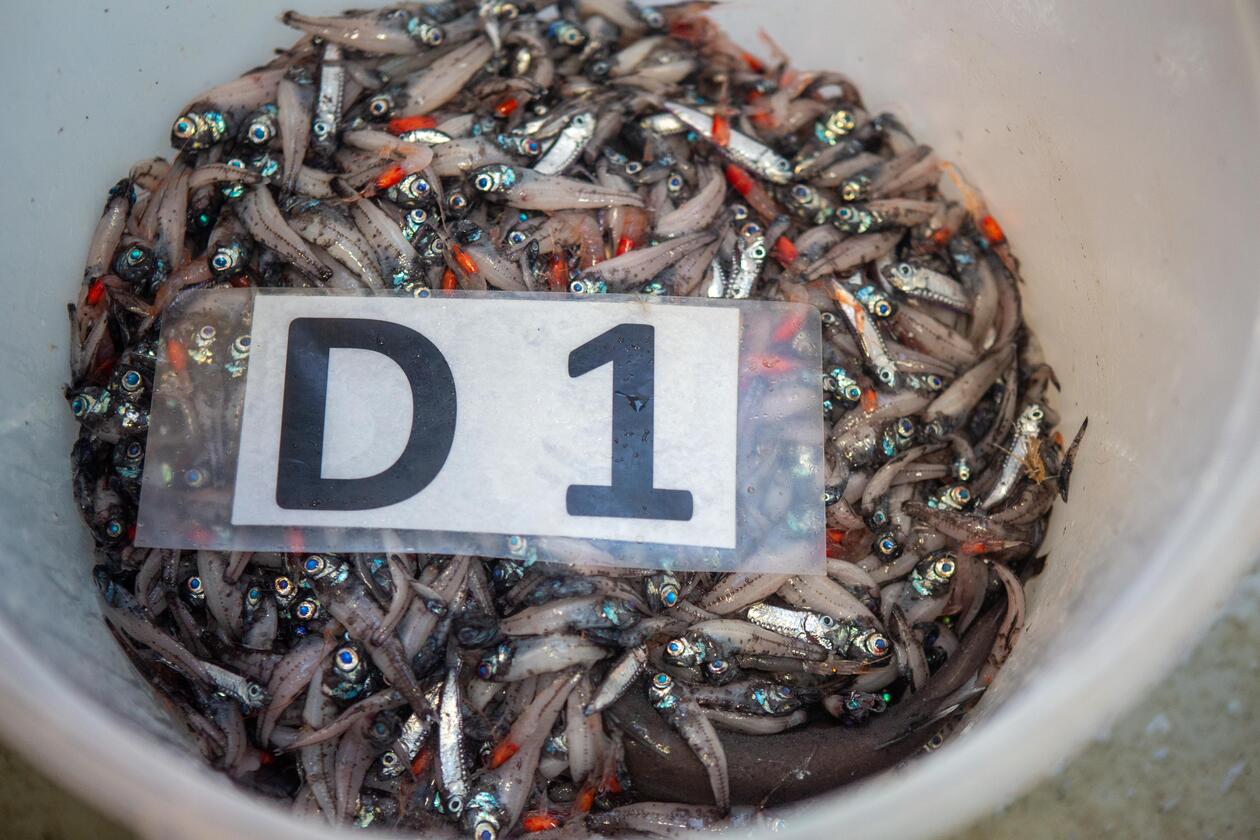Øivind completes his Master degree
Øivind has been studying the effect of the parasitic copepod Sarcotretes scopeli on its mesopelagic fish host.

Main content
Øivind Andersen defended on Thursday 15th September 2022 his thesis "Body-snatcher from the deep? The effect of the parasitic copepod, Sarcotretes scopeli (Jungersen, 1911), on its mesopelagic fish host”. When Øivind attended the BIO325 Ocean Science course he noticed that there were parasitic copepods, S. scopeli, attached to many individuals of the mesopelagic fish species Benthosema glaciale. After literature research, he found out that little is known about this host-parasite system, and the only previous paper from Norwegian fjords was more than 50 years old. Øivind therefore decided to do his M.Sci project on this host-parasite system. He collected his field data from Masfjorden and Fensfjorden as part of the HypOnFjordFish project onboard the RV G.O. Sars and RV Kristine Bonnevie. As we know, Masfjorden has had some years with oxygen loss due to a 75 m shallow sill separating the deep basin water (basin depth 485 m) from waters outside the fjord, whereas the neighbour fjord, Fensfjorden, is well oxygenated. Øivind's main finding was that S. scopeli greatly reduces the gonado-somatic index for both females and male B. glaciale, and thus appeared to castrate its host. He also reported a trend of higher prevalence in Masfjorden than in Fensfjorden, though not significant based on the data set he had available. Øivind discusses his results in relation to literature that shows that a castration effect of parasites can alter the host population dynamics. He suggests that since B. glaciale is a key species in the fjord ecosystem of western Norway, further studies on the parasite-host system could increase our understanding of the role of parasites at an ecosystem level.
The external examiner was Jens Høeg from the University of Copenhagen, and the internal examiner was Adele Mennerat. The thesis was supervised by Anne Gro Vea Salvanes and Henrik Glenner (Fjord and Coastal Ecology).

A parasited Benthosema glaciale.
